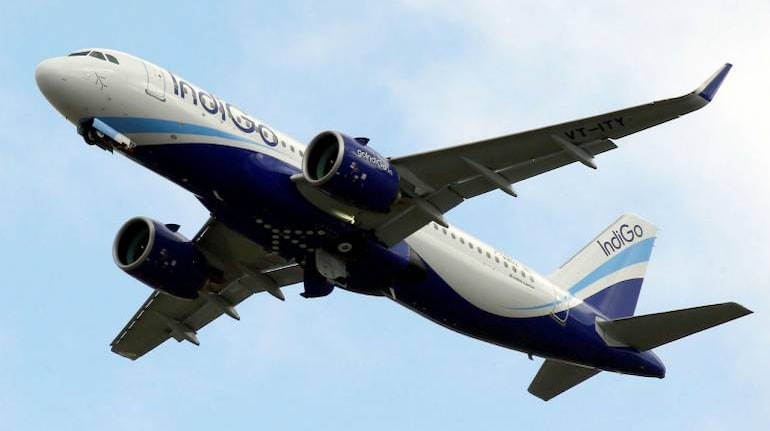



In a coup of sorts, IndiGo, the country’s biggest carrier by fleet and domestic market share, has been awarded night parking for its ATR 72-600 aircraft in New Delhi. The first of these starts operations on September 1 with the launch of its 70th domestic station – Gwalior.
The New Delhi base gives IndiGo the ability to take on SpiceJet and Alliance Air, which already operate turboprops from the airport. With the start of flights to Gwalior, the airline will also use ATRs to operate flights to other destinations in the north.
IndiGo’s ATR operations are a bit of a flip-flop in terms of operations. The decision to use ATRs was a departure from its one-aircraft-type fleet. The airline had always said that a simple fleet strategy was what differentiated it from others.
When the ATR induction was announced, there was talk of the ATR unit operating as an independent entity but most certainly in isolation from the A320 network. However, two years after operating separately and just before the pandemic, IndiGo started deploying ATRs on the same routes as its A320s.
Perspective
In its early days, IndiGo displaced Jet Airways from some markets by deploying the only aircraft it had in its fleet then – the Airbus A320 – against its rival’s ATRs. It’s important to understand the differences in the cost structure of operating both types of aircraft.
Aviation is often split into two camps in terms of how to operate – on the basis of the lowest cost per seat or lowest unit cost, or on the basis of lowest trip cost or cost of flying in a sector. The two opposing strategies have their merits and demerits.
Unit cost get cheaper when there are more seats in an aircraft as the cost of operating that flight is divided by the number of seats.
The trip cost basis could see a higher cost per seat but lower overall cost of operating in that sector.
Either way, what matters is adjusting to the market reality. Operating a large aircraft in a sector could mean diluting yields to attract traffic from other modes of transport whereas using a small aircraft could mean a lower cost of operating albeit higher fares to break even.
Will IndiGo be another Jet Airways?
In 2017, much before Jet Airways started its downward trend, the airline was in talks with regional carrier TruJet to lease out its ATRs. One reason cited was the lack of profitability on the ATR network.
Jet Airways had tried various permutations and combinations in deploying its ATRs and even went back on its plan several times. There were times when the airline operated ATRs on all flights between Bengaluru and Chennai and then shifted to B737.
At times, IndiGo went in with its A320s in sectors like Delhi-Jaipur and Delhi-Chandigarh to counter Jet Airways’ ATR flights. The passengers soon liked the A320s – they were faster and more comfortable than ATRs. Even without loyalty benefits, IndiGo made a mark in such sectors.
The real challenge was in sectors where Jet Airways operated B737s as well as ATRs. While it might have been a great way to balance demand and total capacity in a market, passenger experience and higher flying time meant that other airlines could make a dent wherever possible.
Is IndiGo simply repeating the mistakes of Jet Airways? The ATR flight from New Delhi to Lucknow would take one hour and thirty-five minutes – half an hour longer than the other flights that the airline operates. The central Indian routes from Indore are very similar to what Jet Airways once had but couldn’t sustain.
The cost advantage
An ATR sub-fleet is not new in India. Jet Airways, Air Deccan, Kingfisher Airlines and Air India have operated or continue to operate ATRs. Operating an ATR is cheaper than flying an A320 or B737. However, the per-seat cost is higher. This means that an airline has to operate these flights in sectors where the average fares are higher to help it break even.
However, with IndiGo, the airline stretches both sides. It inducted the A321neo, which reduces its per unit cost by a large extent thanks to the 232 seats that can be packed in, and the ATR, which has fewer seats and increases its per unit cost. The average would end up sustaining ATRs better, unlike Jet Airways, whose cost structure led to its collapse.
Tail note
There are two possibilities for IndiGo’s ATR network to go hand in hand with the Airbus network. The first one is COVID-19-led, where demand is fluctuating and the airline wants to add frequency but not as many seats. While this is a balancing act, it could still mean testing the waters with passenger experience.
The second could be a placeholder for slots. The plan to base ATRs in New Delhi was sudden and it may just add flights to existing stations to hold the slots, only to redeploy them when it starts additional destinations.
Discover the latest Business News, Sensex, and Nifty updates. Obtain Personal Finance insights, tax queries, and expert opinions on Moneycontrol or download the Moneycontrol App to stay updated!
Find the best of Al News in one place, specially curated for you every weekend.
Stay on top of the latest tech trends and biggest startup news.